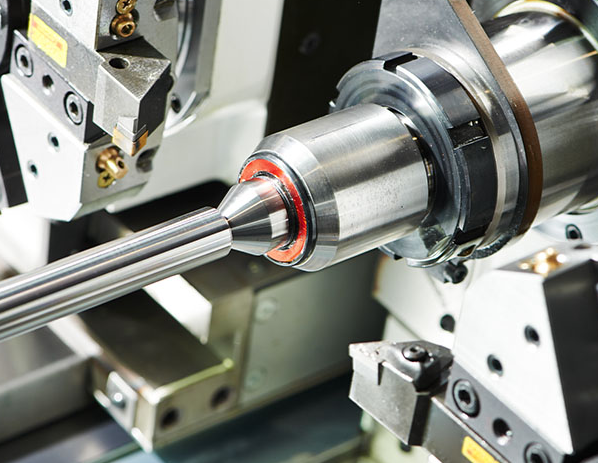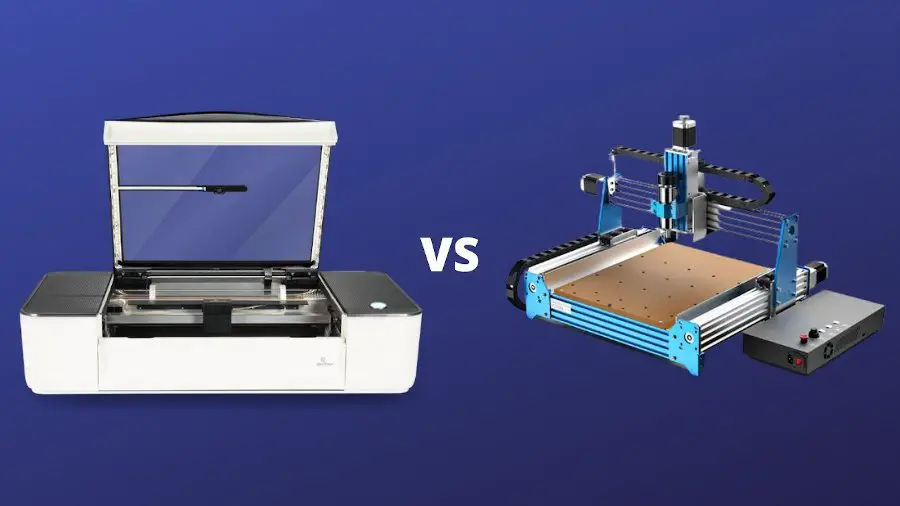Table of Contents
CNC machines have revolutionized the manufacturing industry with their precision and efficiency. However, the question remains: how accurate are these machines?
To answer this question, we must first understand what CNC machines are and how they work. CNC stands for Computer Numerical Control, and these machines are programmed to execute precise movements using computer-aided design (CAD) software. But just how precise are these movements, and what factors can affect their accuracy? Join us as we delve deeper into this topic and uncover the truth behind CNC machine accuracy.
CNC machines are highly accurate and can achieve precision within a few microns. However, the accuracy of CNC machines depends on various factors such as the quality of the machine, the calibration of the machine, and the skill of the operator. In general, modern CNC machines are capable of producing highly accurate and consistent results, making them a popular choice in manufacturing and engineering industries.
How Accurate Are CNC Machines?
CNC machines are an essential tool in many industries, including manufacturing, aerospace, automotive, and medical. These machines are used to create complex parts and components with high precision and accuracy. But how accurate are CNC machines, and what factors affect their accuracy? In this article, we will explore the accuracy of CNC machines and the factors that affect their precision.
Understanding CNC Machine Accuracy
CNC machines are known for their accuracy and precision. But what does accuracy mean in the context of CNC machines? Accuracy refers to the degree of conformity between the actual and desired position of the cutting tool. In other words, it is the ability of the machine to create parts that match the desired specifications.
The accuracy of a CNC machine is typically measured in microns, with the most precise machines capable of achieving tolerances of less than one micron. However, achieving this level of precision requires a combination of factors, including the quality of the machine, the cutting tool, and the operator’s skill.
Factors That Affect CNC Machine Accuracy
While CNC machines are designed to be accurate, several factors can affect their precision. These factors include:
Machine Quality
The quality of the CNC machine plays a significant role in its accuracy. Higher quality machines are typically made from better materials, have more advanced control systems, and are built to tighter tolerances. This results in a machine that is more stable and less prone to vibration, which can affect accuracy.
Cutting Tool Quality
The quality of the cutting tool used in a CNC machine also affects its accuracy. High-quality cutting tools are made from premium materials and are designed to maintain their sharpness for longer periods. This results in a cleaner, more accurate cut and reduces the likelihood of tool deflection.
Operator Skill
The operator’s skill is another critical factor that affects CNC machine accuracy. An experienced operator can make adjustments to the machine’s settings based on the material being cut and the desired tolerances. They can also identify potential issues before they become a problem, ensuring that the machine operates at its highest level of accuracy.
The Benefits of CNC Machine Accuracy
The accuracy of CNC machines offers several benefits, including:
Reduced Waste
CNC machines produce parts with high precision, resulting in less waste. This reduces material costs and can result in significant savings over time.
Improved Quality
CNC machines produce parts with consistent quality, ensuring that each part meets the same standards. This results in fewer defects and higher-quality products.
Accuracy vs. Speed
While accuracy is essential, it’s not the only factor to consider when using a CNC machine. Speed is also a critical factor, as faster machines can produce more parts in less time. However, achieving high speeds can affect the machine’s accuracy, making it a balancing act between speed and precision.
In Conclusion
CNC machines are highly accurate tools, capable of producing parts with tolerances of less than one micron. However, achieving this level of precision requires a combination of factors, including the quality of the machine, the cutting tool, and the operator’s skill. While accuracy is essential, it’s not the only factor to consider when using a CNC machine. Speed is also a critical factor, making it a balancing act between speed and precision.
Frequently Asked Questions
In the world of manufacturing, CNC machines have become a staple. These machines offer precision, efficiency, and accuracy that is unmatched by traditional manual machines. However, some people still question the accuracy of CNC machines. In this article, we will answer some of the most frequently asked questions about the accuracy of CNC machines.
How do CNC machines ensure accuracy?
CNC machines are equipped with several features that ensure accuracy. Firstly, they use computer programs to control the cutting tools, which eliminates the possibility of human error. Additionally, CNC machines are equipped with sensors that constantly monitor the cutting process and make adjustments as necessary to maintain accuracy. Finally, CNC machines use high-quality cutting tools that are designed to produce precise cuts.
Overall, these features work together to ensure that CNC machines are accurate and reliable machines that can be used for a wide range of applications.
What factors can affect the accuracy of a CNC machine?
While CNC machines are designed to be accurate, several factors can affect their accuracy. One of the most significant factors is the quality of the cutting tools being used. Low-quality tools can produce inaccurate cuts, which can affect the overall accuracy of the machine. Additionally, temperature changes and vibrations can also affect the accuracy of a CNC machine.
To mitigate these factors, most CNC machines are equipped with features such as temperature control systems and vibration dampening systems. Additionally, regular maintenance and calibration can help ensure that the machine is operating at peak accuracy.
How accurate are CNC machines compared to manual machines?
CNC machines are significantly more accurate than manual machines. Manual machines are operated by hand, which can introduce human error into the cutting process. Additionally, manual machines do not have the same level of precision and control as CNC machines. CNC machines are designed to produce identical parts with high accuracy, which is not possible with manual machines.
Overall, CNC machines offer superior accuracy, efficiency, and productivity compared to manual machines, making them the preferred choice for many manufacturers.
What is the tolerance level of a CNC machine?
The tolerance level of a CNC machine depends on several factors, including the type of machine, the quality of the cutting tools, and the complexity of the part being produced. Generally, CNC machines can achieve tolerances of +/- 0.005 inches or better. However, some machines are capable of achieving even tighter tolerances of +/- 0.001 inches or less.
To achieve these tight tolerances, CNC machines must be carefully calibrated and maintained. Additionally, the cutting tools must be of high quality and properly sharpened to produce accurate cuts.
Can CNC machines produce identical parts?
Yes, CNC machines are designed to produce identical parts with high accuracy. CNC machines use computer programs to control the cutting process, which ensures that each part is produced to the same specifications. Additionally, CNC machines can produce parts at a much faster rate than manual machines, which makes them ideal for large-scale production runs.
Overall, CNC machines are highly accurate and reliable machines that can produce identical parts with high precision and efficiency.
In conclusion, the accuracy of CNC machines is undoubtedly impressive. With the precision and consistency that these machines offer, they have revolutionized the manufacturing industry. However, it is essential to remember that no machine is perfect, and there may be variances in accuracy due to factors such as machine maintenance, programming errors, and material properties.
Despite these potential challenges, CNC machines remain a crucial tool for manufacturing companies worldwide. From aerospace to automotive industries, CNC machines have made it possible to create complex shapes, intricate designs, and high-quality products with ease. With continued advancements in technology, we can expect even greater accuracy and efficiency from CNC machines in the future.
In conclusion, while there may be occasional discrepancies in accuracy, CNC machines offer a degree of precision that is unmatched by traditional manufacturing methods. As long as they are properly maintained and programmed, these machines will continue to be an essential piece of equipment for manufacturers around the globe.
Request a quote today!
[contact-form-7 id="1578" title="Contact form"]
Please compress the file into a ZIP or RAR file before uploading. Alternatively, send through your RFQ by email.
enquires@unitymanufacture.com





